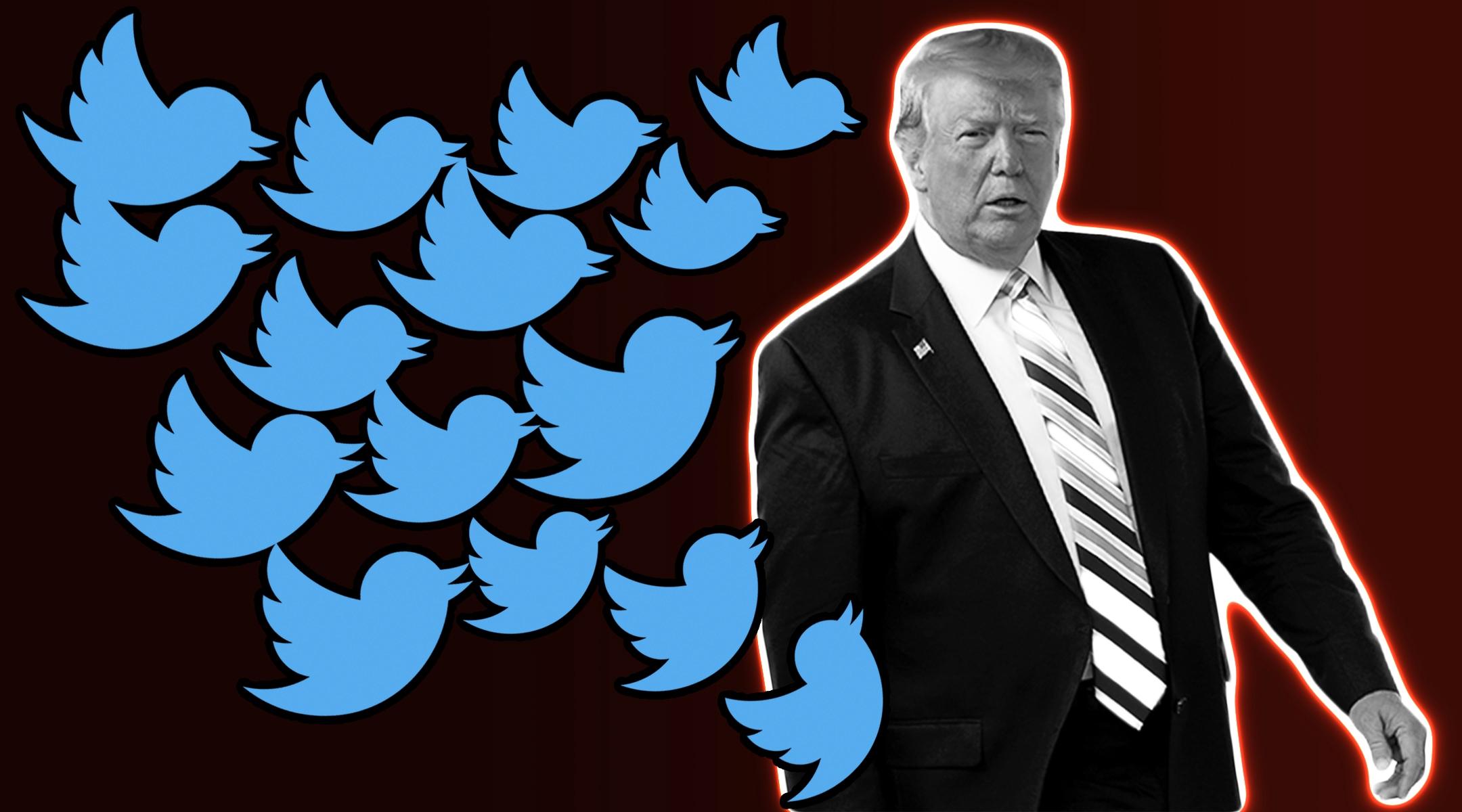TEL AVIV (JTA) — President Donald Trump has a well-established reputation for being aggressive, petty and even at times completely incoherent on Twitter. On May 29, he crassly tweeted, “When the looting starts, the shooting starts,” a phrase used by a white police commissioner in regards to racial tensions and riots in the 1960s.
With the enhanced scrutiny on social media networks to stop hate speech and misinformation, Twitter has implemented inconsistent policies to “fact check” and label tweets from the president and other public figures. Facebook now plans to do the same.
Unfortunately, attempts to moderate Trump’s behavior will do more harm than good. Far from solving the problem, it will perpetuate it: Just as the media ultimately helped Trump win the election by giving him so much air time, so, too, will these new policies backfire.
Having spent the past decade working to combat anti-Semitism online, and as the architect of the StandWithUs digital department, I witnessed firsthand how even the most well-intentioned effort to police online speech can easily run into pitfalls or produce results that are the opposite of what’s intended.
Twitter has long faced criticism for political bias from many directions. The far right argues that Twitter has an agenda of silencing right-wing figures such as Laura Loomer, and most recently Katie Hopkins, who were both permanently kicked off the platform. Twitter also faces criticism for its continued failure to rein in Holocaust denial, hate speech, Nazi imagery and openly anti-Semitic leaders like Louis Farrakhan and former Knights of the KKK Grand Wizard David Duke. Only after massive uproar did Twitter remove Farrakhan’s notorious tweet comparing Jews to “termites,” and even after that, it did not ban him from the platform.
While I find Trump’s looting and shooting tweet absolutely inappropriate and offensive, I don’t see it as more inappropriate or offensive than other content that Twitter chooses to ignore. Twitter damages its own credibility by ignoring these threats while responding to Trump by placing a warning that his tweet “glorifies violence.”
Indeed, Twitter’s efforts have already backfired. On May 29, Trump issued an executive order to prevent online censorship in what was perceived as a direct attack on the network. While the executive order is deeply flawed and likely won’t stand up to legal scrutiny, it’s a serious act of hostility toward the social media site and will certainly rile Trump’s base.
While at war with the Trump administration, Twitter is also ignoring far more dangerous content. Iran, which has banned Twitter for its own citizens, routinely uses the platform to incite against Israel and the United States, and has even shared an image calling for the “Final Solution” — a cartoon in which Iran controls Jerusalem.
In recent weeks, Iranian leaders have also been vocal in latching on to the Black Lives Matter movement in an effort to criticize the United States. Twitter has not placed warnings on tweets from Khamenei or other Iranian leaders. Similarly, there’s a well-documented track record of Iran, Turkey, China and Russia using bots and Twitter campaigns to promote pro-regime messages and misinformation. Though these coordinated campaigns are often discovered and the accounts removed, it’s always after the fact.
If Twitter has proven incapable of handling state-sponsored misinformation, Holocaust denial and rampant anti-Semitism on its platform, what is it dealing with instead?
In the past few weeks Twitter, intentionally or not, provoked a fight with Trump by adding warnings to multiple tweets. In May, Twitter added a fact check to the president’s tweet about mail-in ballots with a point-by-point refutation of his claims in its own voice. Note that Twitter at the time hadn’t fact-checked any of China’s misinformation about COVID-19 by its diplomats, nor Turkey’s propaganda campaigns nor any other world leaders. Additionally, the entire world of “fact-checking” is fraught with errors from the left to the right. So why has Twitter made itself the arbiter of truth, opening up the platform to accusations of hypocrisy and selective enforcement?
Regardless of how offensive and inappropriate Trump’s rhetoric is, Twitter is giving him more press, more ammunition and more attention by singling him out repeatedly. This is the same method that much of the media adopted prior to the last election, and the result was the people pushing back against an almost obsessive Trump hatred. If Twitter continues on this path, it will have done its part to help President Trump secure a second term.
JTA has documented Jewish history in real-time for over a century. Keep our journalism strong by joining us in supporting independent, award-winning reporting.







